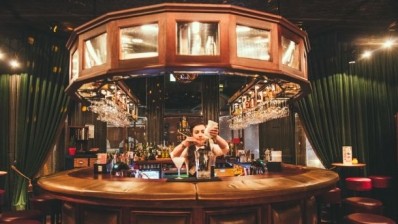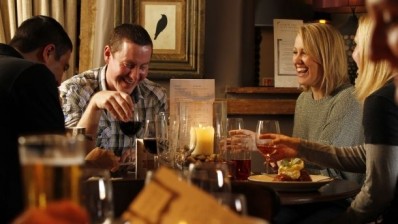Mintel's Chris Wisson on how multiple site operators can boost footfall and spend

High quality food is a great way of encouraging consumers to spend more money at the pub. 26% of pub-goers state that they visited a pub in the month to September 2015 because of its high quality food.
Despite the overall number of pub visitors remaining broadly flat, the significant decline in on-trade drinks volumes in recent years shows how many people are cutting back on how much they drink when at the pub. Smaller serving sizes such as schooners (2/3 of pints) and flights can be effective in encouraging trading up rather than cutting back.
Craft continues to offer landlords opportunities to trade consumers up from more mainstream beers. Many craft beers do carry a price premium, something which many drinkers will pay for, but within reason. 44% of beer drinkers think that craft beer is overpriced, with only 29% of out-of-home beer drinkers willing to spend more than £4 per pint. While craft beer can provide opportunities to boost average spend, landlords could deter trading up if they stretch price premiums too far.
What key trends have Mintel seen in pub visiting habits?
Many consumers are going out to the pub less than they used to, largely the result of the widening gap between on- and off-trade drink prices. However, with consumer confidence returning, they are typically looking for a more special experience when they do so, helping to explain why many premium drinks brands are in growth in the on-trade. The craft beer movement continues to appeal to many drinkers, enabling them to try brands in pubs which may otherwise be hard to find.
Food has also become a more important part of pub visits for many consumers, and many gastropubs are thriving. Pub grub is reinventing itself and landlords which are providing fresh and high quality food options, coupled with an appealing range of drinks, are unlikely to be struggling too much with footfall. 38% of pub visitors expect pubs to have a high quality food menu, and venues which do not do so risk missing out on notable food and drink sales.
What is your main concern for the sector?
The widening gap between on- and off-trade drinks prices is a notable risk to the pub trade. For example, promotional activity in support of the World Cup meant that many beers actually saw a drop in average retail prices last year, also impacting on cider sales.
The removal of the tax escalator and support in recent Budgets have shown how beneficial a thriving pub industry can be to the UK. However, many consumers remain watchful over their spending, and have become more willing to drink at home and take advantage of lower retail prices rather than paying considerably more to drink the same brands out of home. Jacques Borel's VAT Club is a worthy cause in trying to rebalance the on- and off-trade discrepancies, but the limited progress so far suggests that this will be a longer term battle.
The uncertainty surrounding the pub code is also a risk. The sector can ill afford to have standoffs between landlords and pub companies as the pub itself will often suffer as a result. There needs to be greater collaboration within the industry to ensure that good landlords are incentivised to succeed and are not lost from the industry due to long working hours and relatively low pay.
Any predictions for how the industry will be looking in 2016, and any trends you think will take over next year?
Pub food should continue to rise up many landlords' list of priorities as a means of encouraging trading up. Street-food inspired flavours could follow up on the popularity of dishes such as pulled pork and provide pub menus with some more modern options.
Within drinks, craft and cask will continue to thrive and more pubs will acknowledge these as an effective way of combatting in-home drinking. Premium cocktails, possibly revisiting classics such as Negronis, can also be a way of finding a space in many consumers' fewer nights out.
Many pubs are also likely to have to continue diversifying to remain relevant. Coffee shops and even burger restaurants are now coming from the other direction and exploring selling alcohol, so pubs should be prepared to fight fire with fire. Boosting day trade is increasingly important: for example, high quality coffee and fresh snack options (eg cakes, sandwiches) in an appealing environment could win more of the consumers who currently spend heavily in venues such as coffee shops.





